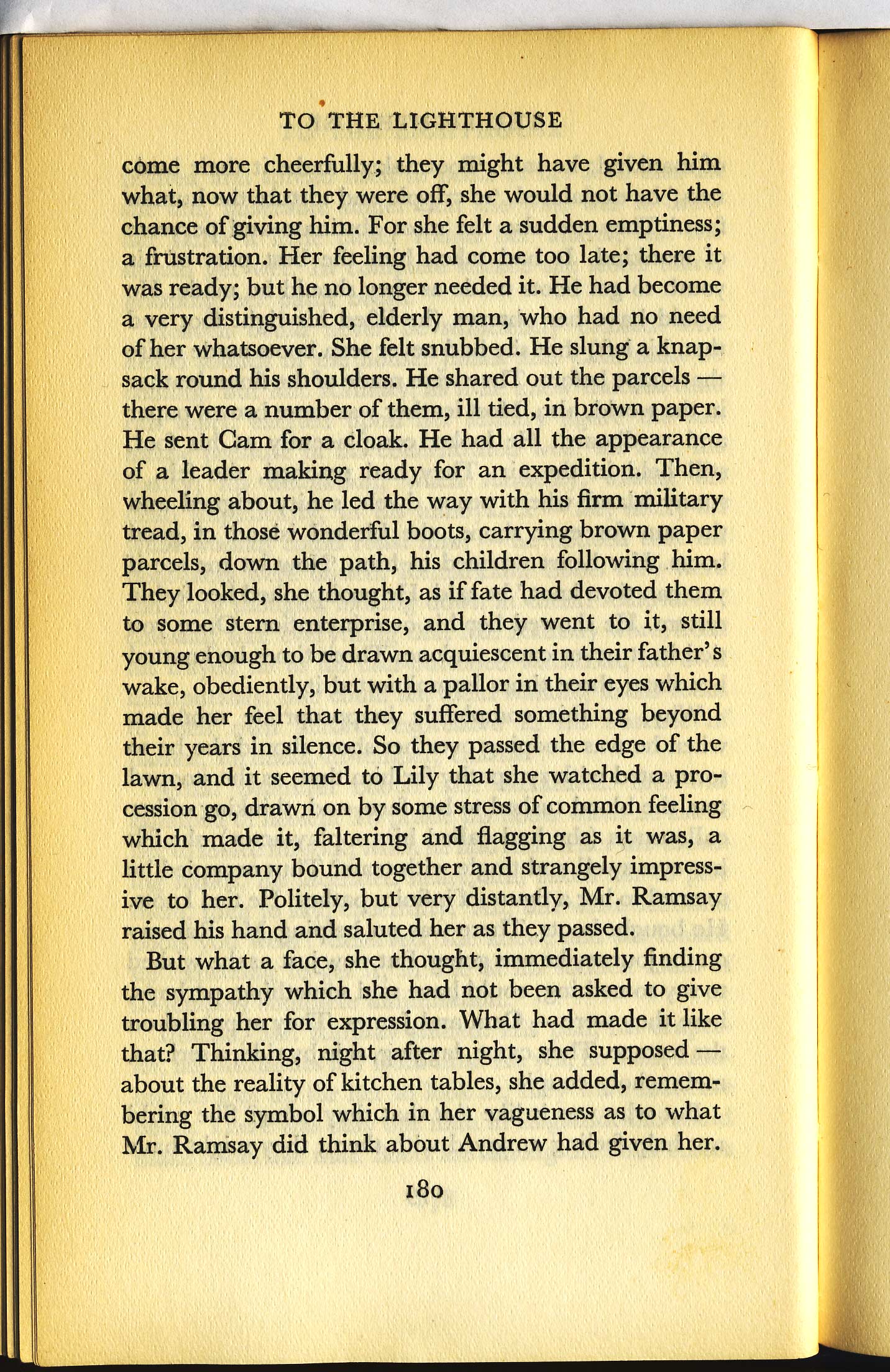
TO THE LIGHTHOUSEcome more cheerfully; they might have given himwhat, now that they were off, she would not have thechance of giving him. For she felt a sudden emptiness;a frustration. Her feeling had come too late; there itwas ready; but he no longer needed it. He had becomea very distinguished, elderly man, who had no needof her whatsoever. She felt snubbed. He slung a knap-sack round his shoulders. He shared out the parcels —there were a number of them, ill tied, in brown paper.He sent Cam for a cloak. He had all the appearanceof a leader making ready for an expedition. Then,wheeling about, he led the way with his firm militarytread, in those wonderful boots, carrying brown paperparcels, down the path, his children following him.They looked, she thought, as if fate had devoted themto some stern enterprise, and they went to it, stillyoung enough to be drawn acquiescent in their father’swake, obediently, but with a pallor in their eyes whichmade her feel that they suffered something beyondtheir years in silence. So they passed the edge of thelawn, and it seemed to Lily that she watched a pro-cession go, drawn on by some stress of common feelingwhich made it, faltering and flagging as it was, alittle company bound together and strangely impress-ive to her. Politely, but very distantly, Mr. Ramsayraised his hand and saluted her as they passed.
But what a face, she thought, immediately findingthe sympathy which she had not been asked to givetroubling her for expression. What had made it likethat? Thinking, night after night, she supposed —about the reality of kitchen tables, she added, remem-bering the symbol which in her vagueness as to whatMr. Ramsay did think about Andrew had given her.180









